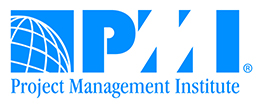Archive for the ‘ PMP Certification ’ Category
PMBOK4 to PMBOK 5 deeper drill (4)
Some of the changes in the early sections of the book appear to be there for the purpose of justifying project management’s role as a business tool in adding value. PMO now described as having three types: supporting, controlling and directive Expands on the concept of operations management including operational stakeholders Adds a new
PMBOK 4 to PMBOK 5 deeper drill (3)
Inputs, Tools and Techniques and Outputs that were removed Work performance measurements Project management estimating software Budget forecasts Proprietary quality management methodologies Run chart Stakeholder management strategy Forecasting methods Reporting systems Information distribution tools Planning meetings and analysis Risk register
PMBOK 4 to PMBOK 5 deeper drill (2)
Processes that changed names Old name New name Direct and Manage Project Execution Direct and Manage Project Work Verify Scope Validate Scope Plan Quality Plan Quality Management Perform Quality Control Control Quality Develop Human Resource Plan Plan Human
PMBOK 4 to PMBOK 5 deeper drill
Late last year, PMI came out with a new Project Management Body of Knowledge (PMBOK) v. 5. Like a lot of people, I wrote something up about it on these very pages. Now that the date of the test cutover (July 31) is imminent and I’ve done a deeper drill, I thought it might be advantageous to revisit this subject: For PMBOK 5, PMI has made changes
PMBOK 4 to 5 – Stakeholder Management
The most significant new item in PMBOK 5 is the addition of a tenth Knowledge Area, Project Stakeholder Management. The important thing to know is that stakeholder management is by no means new to PMI. But they have taken it out of the Communications Knowledge Area and put it into its own Knowledge Area. As noted previously, PMI did this “in
Things to know before becoming a PMP – Part One
Note: I wrote this series of blogs because there is a lot of misinformation out there about the PMP exam. (One potential customer, for example, wanted to hire me because “since you are a PMP, you must be good at Microsoft Project.” Now it’s likely true that PMP’s probably use Microsoft Project on a regular basis. But there is no correlation
Things to know before becoming a PMP – Part Two
Now, many universities have degree programs in project management. I used to teach a masters program at one. There is no comparison between the breadth of education you get at this level versus a PMP. Consider that for PMP Prep you are likely to attend a 35-hour class. During that time, the instructor has to teach and test you on nine separate
Things to know before becoming a PMP – Part Three
If after all of the soul-searching you have decided (or are required) to get your PMP, as mentioned we now turn to a whole new set of questions. The first question I always get is this: I’ve heard the exam is really hard. Is it? Well, yes it is. This fact is well-known and is much discussed by those who are seeking to get their certification.
Things to know before becoming a PMP – Part Four
How much money will I need to spend to get certification in either studying or buying materials? Can I self-study or must I pay an instructor? As mentioned earlier, no one walks in off the street, takes the exam and just passes. So you will have to spend SOME money just to get ready for the exam. (And the exam itself currently costs money of
Things to know before becoming a PMP – Part Five
The instructor Ah, the instructor. We haven’t talked about him or her yet. And this is so important. Because if the PMBOK is the source material for all, and the vendor materials are more or less the same, and the cost is right, what’s left to distinguish the courses? Why, the instructor of course. Anybody here ever had a bad teacher? Me
Things to know before becoming a PMP – Part Six
So what you will experience in a virtual session is typically the following: -A large mid-screen area for PowerPoint presentations -A chat feature for text chatting directly (and privately) with the instructor -A feature that allows you to virtually raise your hand and be called on -Student ability to make on-screen annotations and use pointers -Voice

